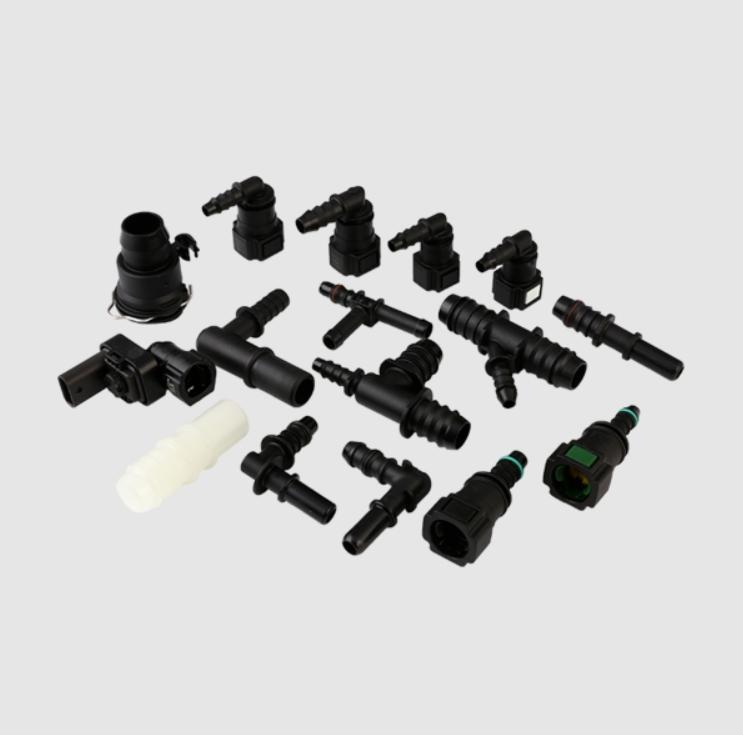Fuel pipe connectors serve as critical junctions within automotive fuel systems, linking different sections of fuel lines and components. Proper connector design is necessary to ensure that fuel flows without leaks and maintains pressure under various operating conditions.
Fuel Quick Connectors simplify the assembly and servicing process by allowing fuel lines to be joined without additional clamps or tools. This type of connector usually contains integrated locking clips or rings that secure the pipe connection quickly and reliably.
Materials used in fuel connectors are chosen for their ability to resist fuel exposure and environmental stresses such as heat, vibration, and moisture. This resistance contributes to maintaining system integrity over time.
A key feature of fuel quick connectors is their sealing mechanism. Typically, O-rings made from fuel-resistant elastomers provide a tight seal between the connector and the pipe. This prevents leaks that could lead to fuel loss or vapor emissions.
The design of these connectors also considers safety regulations to minimize environmental impact and enhance driver safety. For example, quick connectors help prevent accidental fuel disconnections which could result in spills or fire hazards.
Routine inspection of fuel connectors is important in vehicle maintenance to detect wear or damage. Damaged connectors should be replaced promptly to maintain system performance and safety.
In summary, car fuel pipe connectors, especially fuel quick connectors, play a significant role in fuel system reliability. Their design supports safe, leak-free operation while facilitating efficient vehicle assembly and servicing.

